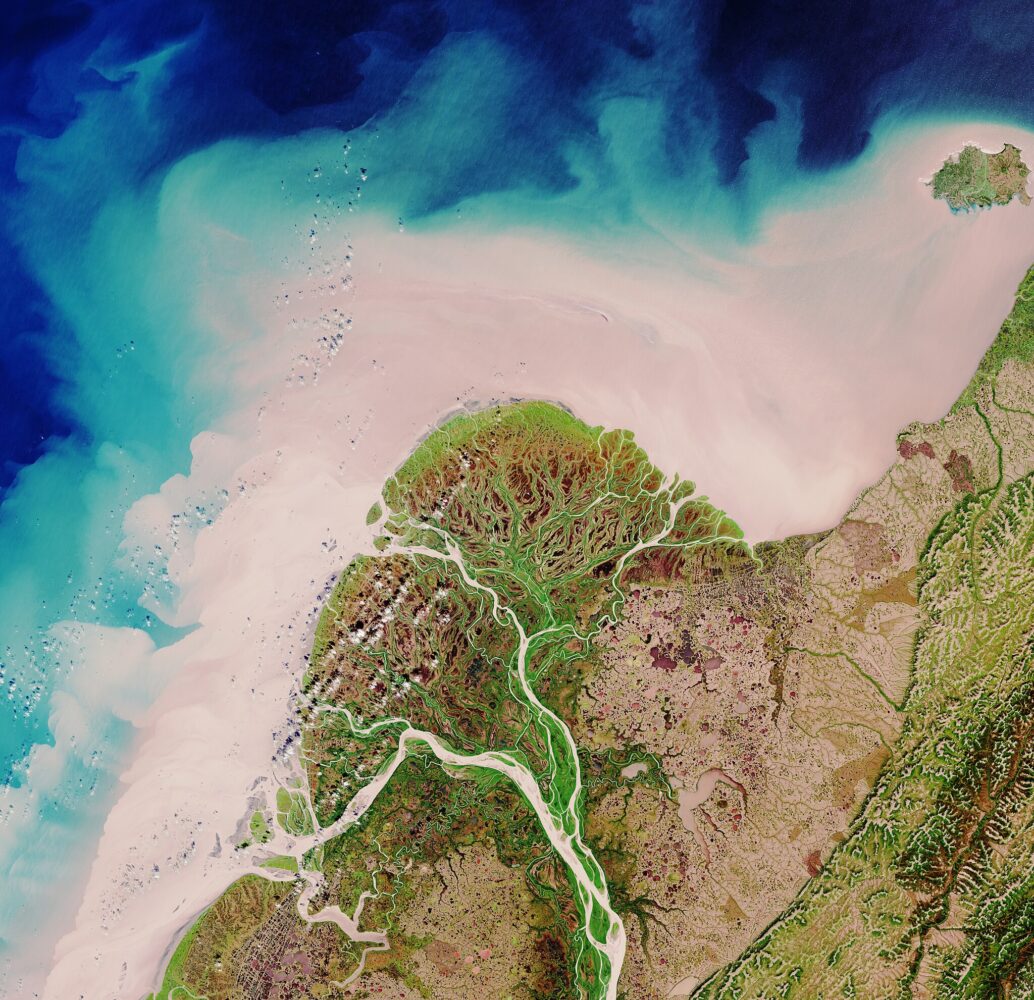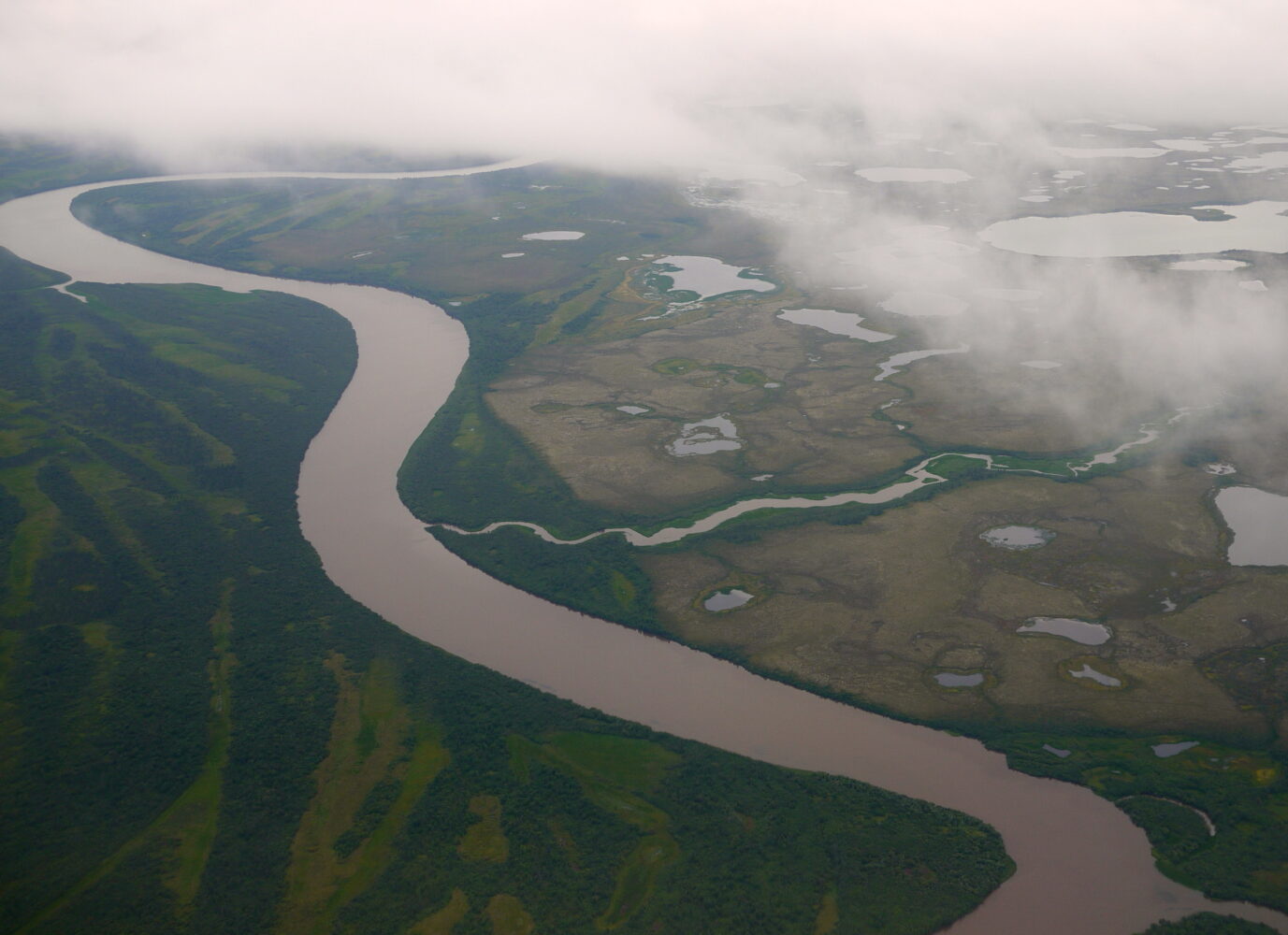
Trust and openness are vital for collaborating with Indigenous communities
Image of the Yukon Delta taken by the Copernicus Sentinel-2 satellite. (CC BY-SA 3.0 IGO; contains modified Copernicus Sentinel data (2017), processed by ESA (https://www.esa.int/ESA_Multimedia/Images/2018/01/Yukon_Delta; CC BY-SA 3.0 IGO))
Indigenous communities have gathered centuries of knowledge on judiciously using and managing their land and its offerings. At a recent conference in Colorado, science writers learned about two projects related to Arctic rivers in which Indigenous experts and scientists have collaborated to combine this knowledge with Western science. They also learned how a senior journalist has established trust with Indigenous communities, a major issue faced when navigating these collaborations.
The stories were told at a ScienceWriters2023 conference panel held on Oct. 8 as part of the Council for the Advancement of Science Writing’s annual New Horizons in Science briefings on the campus of the University of Colorado Boulder. Titled Science + Science Writing + Indigenous Peoples: Knowledge co-production and co-management of Arctic rivers, the session was moderated by Indigenous journalist Joseph Lee and featured panelists who had been part of successful collaborations.

In Alaska, the Kuskokwim River Inter-Tribal Fish Commission (KRITFC) and the U.S. Fish and Wildlife Service (USFWS) are collaborating to manage declining salmon populations in the Kuskokwim River. Kevin Whitworth, executive director of the KRITFC, said that the effort allowed local people in Alaska to be involved in making decisions and managing resources.
They were working on issues that mattered most to Indigenous fishing communities, “which is our food security issues and trying to try to build back salmon populations,” Whitworth said. By integrating Indigenous knowledge with standard assessments, salmon populations can be managed holistically. The commission is now working with the U.S. Department of the Interior and NOAA to regulate bycatch in the ocean and manage salmon not only during their journey in the Kuskokwim River but throughout their lifespan.
In a second partnership, the Arctic Rivers Project, Keith Musselman, an assistant professor of geography at CU Boulder, said he had identified research questions by working with an Indigenous advisory council. By co-producing knowledge, working with Indigenous observation networks, and modeling climate effects, he said, researchers can estimate future temperatures and fish populations. Collaborators have also surveyed Indigenous community members to get a sense of timescales and locations. The multidisciplinary project involving fish ecologists, climate scientists, hydrologists, and social scientists is a collaboration between CU Boulder, the U.S. Geological Survey, and the Yukon River Inter-Tribal Watershed Council.
Nicole Herman-Mercer, a research social scientist with the U.S. Geological Survey and a co-principal investigator on the Arctic Rivers Project, stressed the importance of discussing the meaning of Indigenous knowledge and how communities might want to share their knowledge systems. “They can only really be used if we’re in these really strong agreements with communities to jointly manage the land,” said Herman-Mercer.
Jane Palmer, a freelance journalist who has written about how Indigenous knowledge can aid conversation efforts, said the key to reporting on this topic was to listen, learn, and understand that Indigenous ways of knowing and doing science are different. She advised journalists to choose publishing outlets that support efforts to clarify the meanings of quotes and statements with Indigenous sources. “There’s been so much misrepresentation and misunderstanding… so it has to be almost a collaborative piece of journalism,” said Palmer. She also makes it a point to write for publications without paywalls to ensure that the work can be accessed by her sources.
Audience members asked about the challenge of maintaining journalistic integrity when reporting such stories. All of the panelists agreed that it was paramount to build trust with Indigenous communities and be open about one’s intentions when engaging with sources in these communities.